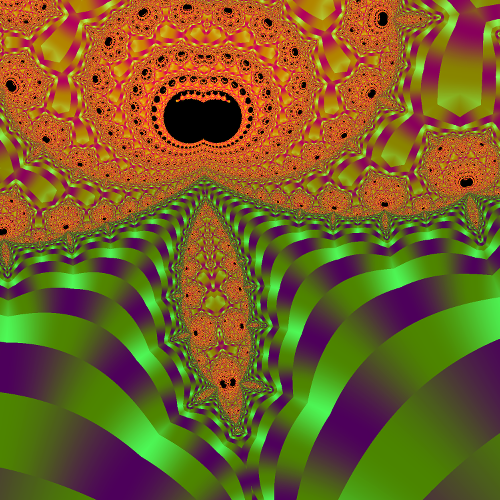結果
| 問題 | No.159 刺さらないUSB |
| コンテスト | |
| ユーザー |
 koyumeishi koyumeishi
|
| 提出日時 | 2015-03-05 00:01:57 |
| 言語 | C++11(廃止可能性あり) (gcc 15.2.0 + boost 1.89.0) |
| 結果 |
AC
|
| 実行時間 | 2 ms / 1,000 ms |
| コード長 | 2,292 bytes |
| 記録 | |
| コンパイル時間 | 895 ms |
| コンパイル使用メモリ | 83,508 KB |
| 実行使用メモリ | 5,376 KB |
| 最終ジャッジ日時 | 2024-07-01 23:42:59 |
| 合計ジャッジ時間 | 1,606 ms |
|
ジャッジサーバーID (参考情報) |
judge2 / judge1 |
(要ログイン)
| ファイルパターン | 結果 |
|---|---|
| sample | AC * 2 |
| other | AC * 18 |
ソースコード
#include <iostream>
#include <vector>
#include <cstdio>
#include <sstream>
#include <map>
#include <string>
#include <algorithm>
#include <queue>
#include <cmath>
#include <set>
using namespace std;
//マルコフなんちゃらの練習
//[n*p] * [p*m] => [n*m]
template<class T>
vector< vector<T> > multmat(const vector<vector<T> > &A, const vector<vector<T>> &B, int n, int p, int m){
vector<vector<T> > C(n, vector<T>(m,0));
for(int i=0; i<n; i++){
for(int k=0; k<p; k++){
for(int j=0; j<m; j++){
C[i][j] += A[i][k] * B[k][j];
//C[i][j] %= mod;
}
}
}
return C;
}
//A[n*n]^k
template<class T>
vector< vector<T> > mat_pow(vector<vector<T> > A, int k){
int n = A.size();
vector<vector<T> > ret(n, vector<T>(n, 0) );
for(int i=0; i<n; i++){
ret[i][i] = 1;
}
while(k>0){
if(k&1) ret = multmat(A,ret, n,n,n);
A = multmat(A,A, n,n,n);
k>>=1;
}
return ret;
}
void print_vec(const vector<vector<double>> &v){
#ifdef DBG_
for(auto l : v){
for(auto x : l){
cerr << x << "\t";
}
cerr << endl;
}
cerr << endl;
#endif
}
int main(){
double p,q;
cin >> p >> q;
//遷移図的な何か
// aは表の状態、 bは裏の状態、 sははじめ、 tは終わり
// s -> a (p)
// -> b (1-p)
// a -> t (q)
// -> b (1-q)
// b -> a (1)
// t -> t (1)
//遷移行列
vector<vector<double>> P(4, vector<double>(4,0));
P = {
// s a b t
{0, p, 1-p, 0},
{0, 0, 1-q, q},
{0, 1, 0, 0},
{0, 0, 0, 1} // <- ここが吸収状態
};
print_vec(P);
//初期状態
vector<vector<double>> S(1, vector<double>(4,0));
S = { {1,0,0,0} };
print_vec(S);
double p1, p2;
auto P2 = mat_pow<double>(P, 2); //0回ひっくり返す
print_vec(P2);
auto P3 = mat_pow<double>(P, 3); //1回ひっくり返す
print_vec(P3);
auto P4 = mat_pow<double>(P, 4); //2回ひっくり返す
print_vec(P4);
{
auto tmp = multmat<double>(S, P3, 1,4,4);
auto tmp_ = multmat<double>(S, P2, 1,4,4);
print_vec(tmp);
print_vec(tmp_);
p1 = tmp[0][3] - tmp_[0][3];
}
{
auto tmp = multmat<double>(S, P4, 1,4,4);
auto tmp_ = multmat<double>(S, P3, 1,4,4);
print_vec(tmp);
print_vec(tmp_);
p2 = tmp[0][3] - tmp_[0][3];
}
//cerr << p1 << " " << p2 << endl;
cout << (p1<p2 ? "YES" : "NO") << endl;
return 0;
}
